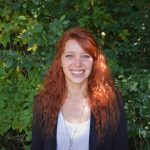Interview with Sarah Rabe from Bonn-Rhein-Sieg University of Applied Sciences. She talks about her role in the project as a linkage between the different disciplines, ensuring an active exchange among the work packages throughout the research process.
Interdisciplinarity is at the core of the EnerSHelF project as different academic disciplines and industrial partners are involved. What is the purpose of this holistic approach?
The holistic approach arises almost automatically out of the project’s topic. The technological transition towards renewable energy – in this case solar energy through photovoltaics (PV) – can only work if the product is of high quality and adapted to the specific region. But even well-engineered technology is pointless if it is not usable for or accepted by the people who are supposed to adapt it. Therefore, one needs different disciplines like engineering, meteorology, and socio-economy to tackle a holistic problem like the energy self-sufficiency of health facilities.
Where are you positioned within the project and what is your specific role?
I have two roles within the project. One is to get a deeper scientific understanding of the institutional and technological interdependencies within the changing health-energy nexus. The second role is directed at the character of the project. Usually within interdisciplinary projects, each involved discipline tends to work by itself and the different results are just lined up at the end. At EnerSHelF, we want to avoid this problem and rather have an interdisciplinary exchange throughout the whole project. By doing so, we are able to find and use synergies to get better solutions and results. In my role, I am aiming to strengthen the links between the disciplines to ensure this exchange.
How do you link the different disciplines?
To link the different disciplines, I first had to understand what they are working on. Accordingly, I started my work by looking over the shoulders of our project partners and work package. Currently, we are planning to hold regular meetings in which the work packages can get to know each other and present their current work on the project. This exchange is set to start in late November. With these meetings, we ensure that arising synergies will be discovered within the working process and not only at the end of the project.
What are the biggest obstacles while working in an interdisciplinary team?
The biggest obstacles might be different “languages” that disciplines use. Some specific words can have different meanings for example in coding and in socio-economic surroundings. Another problem is found in the organizational sphere: Having different disciplines means having different working schedules, deadlines etc. Therefore, to set a date for a meeting is harder than with just one discipline or work package.
And what are the benefits?
The biggest benefit is the chance to learn from one another. You have to widen your view and change perspectives to work well across different disciplines. This can lead to new approaches for solving a given problem which would have been disregarded otherwise.

Sarah Rabe is a geographer with a specialization on the interaction between society and environment. After finishing her master’s degree at the University of Cologne in 2019, she gathered working experiences within the German development sector at the Federal Ministry of Economic Cooperation and Development (BMZ) and the Deutsche Gesellschaft für Internationale Zusammenarbeit (GIZ). Additionally, she worked as a lecturer at the University of Cologne. Since July 2020, she is part of the EnerSHelF project and based at the University of Applied Sciences Bonn-Rhein-Sieg (H-BRS). Within the project, she is responsible for the interdisciplinary cooperation between the different branches. Besides working at the H-BRS, she is currently doing her PhD in Geography at the University of Cologne.